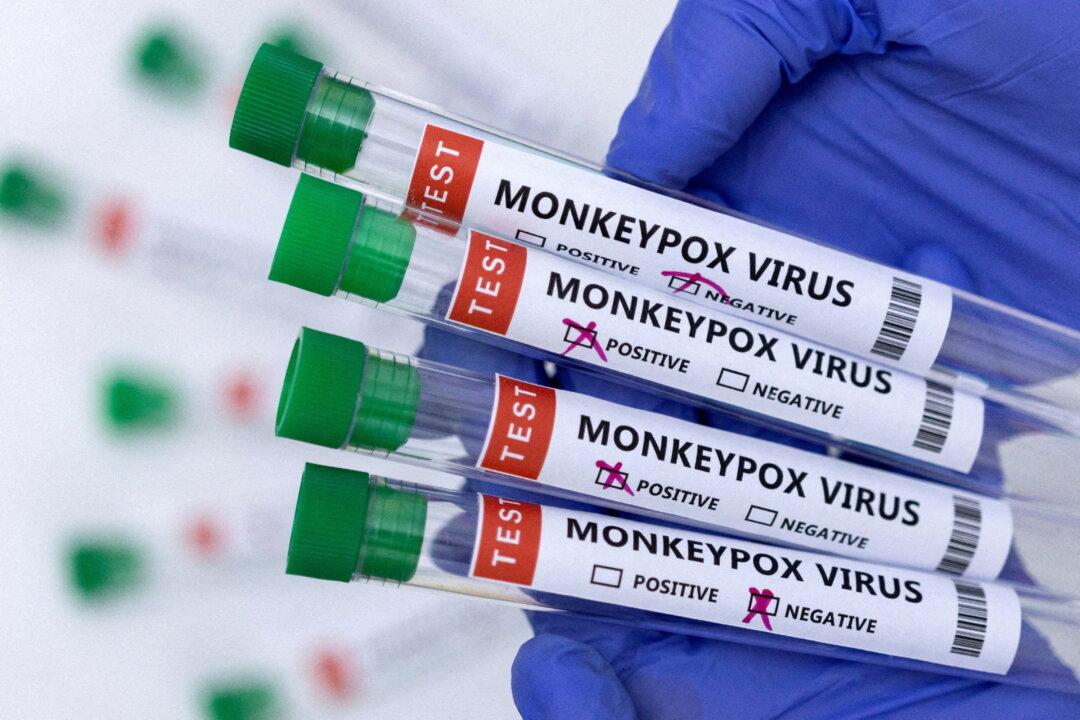A new study into monkeypox holds a possible clue as to why the virus is spreading so quickly, with researchers saying they have discovered that the virus contains an unusually high number of mutations, which may represent “accelerated evolution.”
The new monkeypox strain was found to have an average of 50 mutations in samples examined by Portuguese researchers, while only around 10 would normally be expected, according to the new peer-reviewed study, published on June 24 in the medical journal Nature Medicine.






